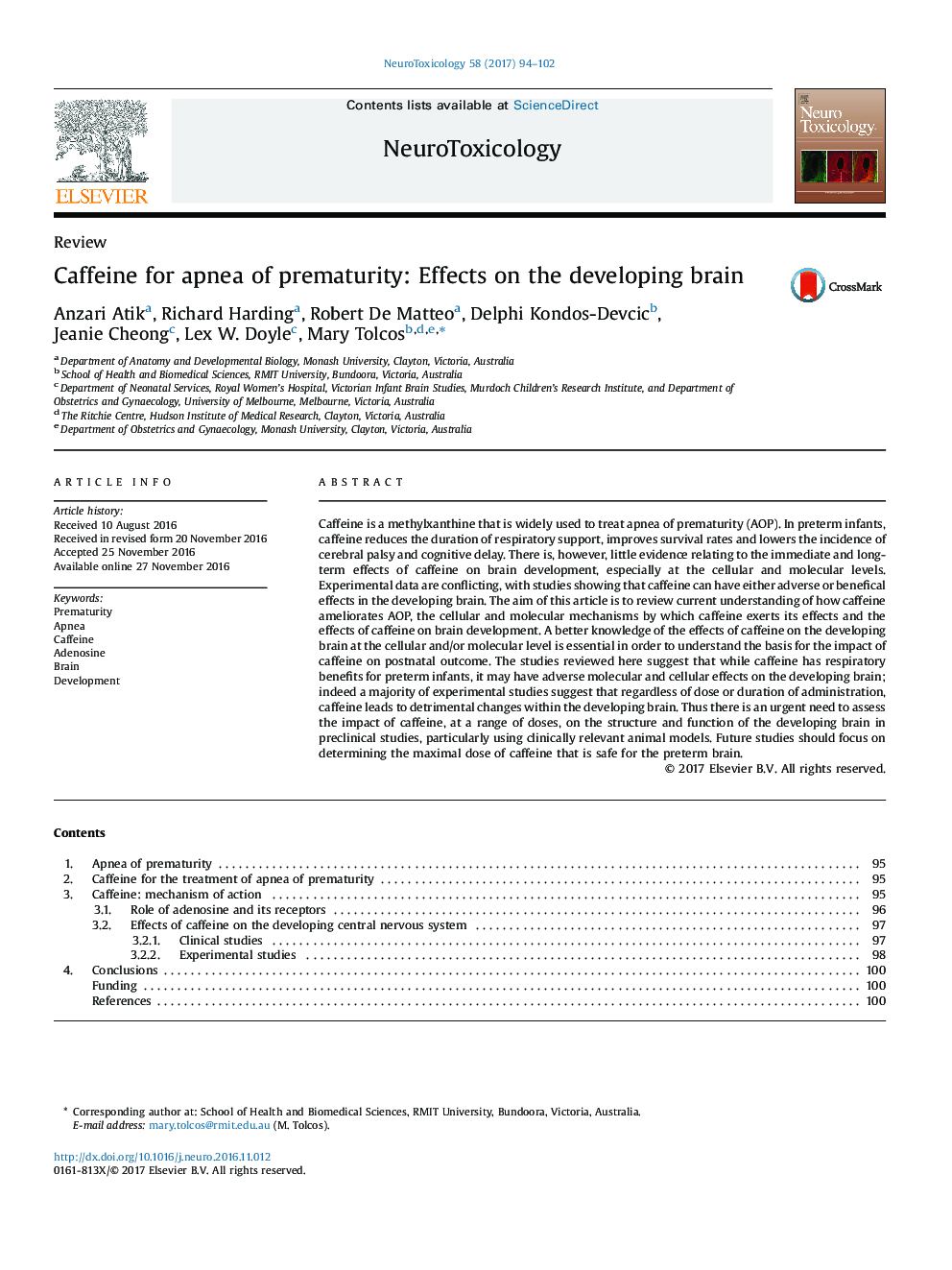| کد مقاله | کد نشریه | سال انتشار | مقاله انگلیسی | نسخه تمام متن |
|---|---|---|---|---|
| 5560869 | 1562036 | 2017 | 9 صفحه PDF | دانلود رایگان |
- Caffeine is widely used to treat apnea of prematurity (AOP) in preterm infants.
- Caffeine is an adenosine receptor antagonist.
- Caffeine can have beneficial or adverse effects on the developing brain.
- However, most studies suggest that caffeine is detrimental to the developing brain.
- The maximal dose of caffeine that is safe to use for AOP needs to be determined.
Caffeine is a methylxanthine that is widely used to treat apnea of prematurity (AOP). In preterm infants, caffeine reduces the duration of respiratory support, improves survival rates and lowers the incidence of cerebral palsy and cognitive delay. There is, however, little evidence relating to the immediate and long-term effects of caffeine on brain development, especially at the cellular and molecular levels. Experimental data are conflicting, with studies showing that caffeine can have either adverse or benefical effects in the developing brain. The aim of this article is to review current understanding of how caffeine ameliorates AOP, the cellular and molecular mechanisms by which caffeine exerts its effects and the effects of caffeine on brain development. A better knowledge of the effects of caffeine on the developing brain at the cellular and/or molecular level is essential in order to understand the basis for the impact of caffeine on postnatal outcome. The studies reviewed here suggest that while caffeine has respiratory benefits for preterm infants, it may have adverse molecular and cellular effects on the developing brain; indeed a majority of experimental studies suggest that regardless of dose or duration of administration, caffeine leads to detrimental changes within the developing brain. Thus there is an urgent need to assess the impact of caffeine, at a range of doses, on the structure and function of the developing brain in preclinical studies, particularly using clinically relevant animal models. Future studies should focus on determining the maximal dose of caffeine that is safe for the preterm brain.
Journal: NeuroToxicology - Volume 58, January 2017, Pages 94-102
